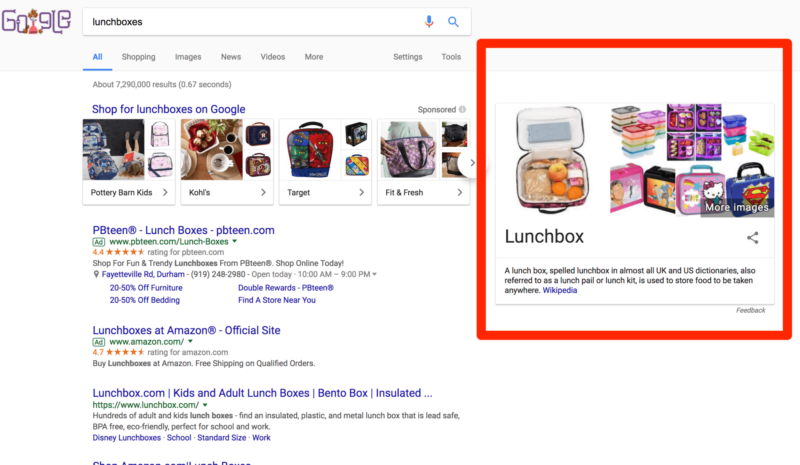Is the featured snippet bubble bursting?
What's going on with featured snippets? Columnists Brian Patterson and Chris Long share data which suggests that Google may be testing a reduction in SERP answer boxes.

This article was co-authored with my colleague at Go Fish Digital, Chris Long.
We’ve been bullish on answer boxes (also known as featured snippets) for a while now. Six months ago, we wrote about unique strategies we’ve been using to obtain those featured snippets. That coveted “position 0” is just so juicy, for a number of reasons:
- It ranks above all of the organic search results.
- It takes up a lot of SERP real estate.
- It attracts a ton of eyes and drives a lot of organic traffic.
- It is often the answer to questions asked to Google Home/Google Assistant.
In May, Ahrefs ran a study of 2 million featured snippets. Out of the 112 million keywords in their database, they observed that ~14 million (a little over 12 percent) were triggering an answer box in their results. That data point aligned with what we were seeing anecdotally, which is that they were popping up all over the place.
Something happened at the end of October
We recently noticed that some of the answer boxes we worked really hard to get were just gone. No notice, no goodbye. We looked across the industry, as well as our tracked keywords for clients, and there did indeed seem to be something going on.
Take a look at what the Mozcast SERP Feature history shows over the past 30 days (pulled November 2, 2017) for Featured Snippets:
That is a drop from around 16 percent to 14 percent over just a couple of days, and after a fairly long period where we’ve seen them generally increase.
We use STAT for keyword tracking. In the example below, our client experienced a 6 percent drop in answer boxes appearing for keywords they track.
Although not a huge dip, it is enough to see a reduction in traffic — definitely not a trend we’d want continuing for them.
What are we seeing in its place?
The interesting thing is that we are seeing an uptick in knowledge panels. Historically, the main knowledge panels in search results were about companies, people and other entities. But now we are seeing generic knowledge panels popping up for all types of queries in ways we hadn’t seen before.
For example, this generic “lunchbox” knowledge panel isn’t a type I had really seen before. Frankly, it isn’t all that helpful either.
When we revisited the Mozcast SERP Feature, we observed a dramatic increase in the number of knowledge panels it’s been discovering:
Since October 27, there has been about a 14 percent increase in the number of knowledge panels Google has been displaying (at the time of this writing). This lines up fairly well with the timeline where featured snippets declined. Returning to our client example, we also saw an increase in the number of knowledge panels observed in their SERP landscape.
Starting on October 27, we can see that the number of knowledge panels in their SERPs rose by 3.7 percent. While this isn’t a huge number, initially only about 0.9 percent of tracked queries were showing a Knowledge Panel. That number has since jumped to 4.6 percent, accounting for over a 400 percent increase.
Has the bubble burst?
I hope not. Google SERPs are volatile right now, so this could be a temporary machine learning test to compare how people interact with the SERPs without featured snippets. Or not.
Will we change strategies?
In the short term, definitely not. Sometimes Google giveth, and sometimes Google taketh away (see authorship photos). Sometimes Google just tests stuff quickly and then goes back to how things were.
I suspect that they’ll come back. But even if they don’t, it is still a worthy endeavor to obtain a featured snippet when you can. Because of the great branding and traffic that come along with featured snippets, even if their volume is reduced, they can still have a positive impact.
Contributing authors are invited to create content for Search Engine Land and are chosen for their expertise and contribution to the search community. Our contributors work under the oversight of the editorial staff and contributions are checked for quality and relevance to our readers. The opinions they express are their own.
Related stories




